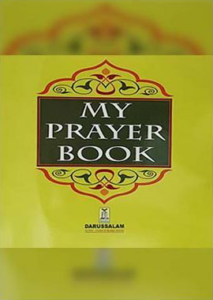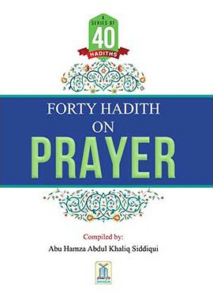In the heart of Muslim tradition lies an act of spiritual surrender and profound devotion called Salah or Salat, a more formal term for Muslim prayer. The phrase “how to pray in Islam” goes beyond simply learning steps; it is about understanding the essence of this communal spiritual practice.
This post by Darussalam will guide you through the process, explaining “how Muslims pray” and answering the question, “How to pray to Allah for help”. We aim to make it easy for anyone to “learn how to pray in Islam”.
Understanding Salah – The Prayers in Islam
Islamic prayer, or Salah, is one of the Five Pillars of Islam. It is obligatory to perform prayers five times a day. The word “Salah” comes from the Arabic سَـلَام (salām), which means “connection”.
Preparing for Prayer
Before starting the prayer, it’s important to ensure you’re prepared both physically and spiritually.
- Purification (Wudu): Cleanliness is a crucial aspect of Salah. Muslims must perform Wudu or ceremonial washing, before each prayer.
- Dress Appropriately: Muslims are required to cover their ‘Awrah’ (parts that should be modestly covered). The concept of modesty varies for men and women.
- Find a Clean Place: The place where you’re praying should be clean and free from impurities.
- Facing the Qibla: All Muslims around the world face the Qibla (the Ka’aba in Mecca, Saudi Arabia) while praying.
Components of the Salah
A full sequence of the prayer consists of specific actions and recitations. Here’s a streamlined step-by-step guide on how Muslims pray:
- Start with Intention (Niyyah): Islamic prayers commence by setting an explicit intention in the heart.
- Opening Takbir (Takbiratul Ihram): Raise your hands to your shoulders and say, “Allahu Akbar” (God is the Greatest).
- Reciting Surah Al-Fatihah: The opening segment of the Qur’an is recited in every unit of the prayer.
- Ruku (Bowing): Now, with your hands on your knees, you bow and say, “Subhana Rabbi Al ‘Azeem” (Glory to my Lord the Almighty).
- Stand Straight: Rise from bowing, saying, “Sami Allahu liman Hamidah” (Allah hears the one who praises Him).
Learn How to Pray in Islam: The Power of Dua
Besides the obligatory prayers, Muslims engage in personal prayers or supplications called ‘Dua.’ “How to pray to Allah for help” involves these Duas, intimate conversations where Muslims can seek guidance, forgiveness, or help.
Conclusion
The Islamic method of praying is a beautiful expression of faith and surrender, a direct link between the believer and Allah. It may seem daunting at first glance, but with practice, patience, and a willing spirit, anyone can learn how to pray in Islam.
Remember to show respect and humility in your prayers, as these are the fundamental elements in all forms of worship. Understanding and mastering the Muslim way of prayer can enrich your spiritual journey tremendously.
Major Points:
- The act of prayer or Salah is one of the Five Pillars of Islam and an essential part of a Muslim’s life.
- Preparation for Salah involves purification, dressing appropriately, finding a clean place, and facing the Qibla.
- The components of Salah include the Niyyah, Takbir, recitation of the Quran, Ruku, Sujood and more.
- Aside from obligatory prayers, Muslims also engage in personal supplications or Duas.
- Learning how to pray in Islam is a process that requires patience, practice and a sincere heart.
Have a look at our vast collection of Darussalam’s prayers and supplications books to get connected to Allah almighty.
Whether a beginner or someone looking to refine knowledge, this guide should help streamline the process of learning to pray in the Islamic way.
Do you have more questions or need further clarification? Please leave a comment, and we’ll do our best to assist you.
DISCLAIMER: This blog post does not replace the advice of a religious scholar, but intends to guide those curious about the practice of prayer in Islam. For an exact interpretation, always consult with an Islamic scholar.
Pray in Islam: FAQ Section
What are the 5 prayers in Islam in English?
The five daily prayers in Islam, also known as Salah, are as follows:
- Fajr (Pre-Dawn Prayer)
- Dhuhr (Noon Prayer)
- Asr (Afternoon Prayer)
- Maghrib (Sunset Prayer)
- Isha (Night Prayer)
How to pray in Islam for women beginners?
The principles of prayer are the same for both men and women in Islam, with slight differences in dress code. The step-by-step guide is as follows:
- Make the intention (Niyyah) to pray
- Perform the Wudu, the ceremonial washing
- Position yourself facing the Kaaba, Mecca (Qibla)
- Begin the prayer by raising your hands to your shoulders and saying, “Allahu Akbar”
- Recite Surah Al-Fatihah, then another Surah or verses from the Qur’an
- Proceed through the Ruku (bowing), Sujood (prostration) and Tashahhud (sitting)
- End the prayer with “Salam” (peace) turned to the right, then to the left
It is recommended for beginners to get assistance from an experienced person or refer to detailed guides/videos to ensure they are performing the Salah correctly.
Can I pray Fajr at 9 am?
The timing of Fajr prayer begins with the start of dawn and ends just before sunrise. Therefore, if it is past sunrise at 9 am in your location, the Fajr prayer time has already concluded and you should not pray Fajr at that time.
What do you say when you pray in Islam?
There are various stages of Islamic prayer, and each has unique recitations, generally sections from the Qur’an. Here are the most common phrases:
- “Allahu Akbar” (God is the Greatest): Said at the beginning and throughout the prayer transitions
- “Bismillahir-Rahmanir-Raheem” (In the name of God, the Most Gracious, the Most Merciful): Recited before Surah Al-Fatihah
- Surah Al-Fatihah: Recited in every unit of prayer
- “Subhana Rabbi Al ‘Azeem” (Glory to my Lord the Almighty): Recited during Ruku (bowing)
- “Sami’ Allahu Liman Hamidah” (Allah hears those who praise Him): Said when standing up from Ruku
- “Subhana Rabbi Al A’la” (Glory to my Lord the Highest): Recited during Sujood (prostration)
- “At-Tahiyyatu Lillahi…” (All compliments, prayers, and pure words are due to Allah): Recited during Tashahhud (sitting)













